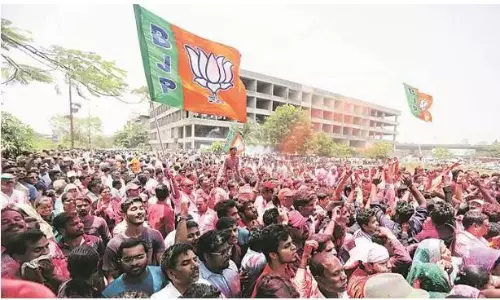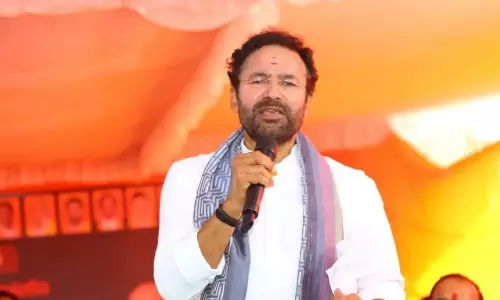
'Creamy layer' income cap for OBCs raised to Rs 8L per annum
text_fieldsNew Delhi: The income limit defining 'creamy layer' for OBC reservation has been raised by Rs 2 lakh per annum even as the Union cabinet Wednesday approved setting up of a panel for sub-categorisation within the other backward classes for even distribution of reservation benefits.
The government also ruled out having a relook at the present reservation system.
Finance Minister Arun Jaitley told reporters here that the Union Cabinet was today formally apprised of the decision to hike the limit for central government jobs.
He said Prime Minister Narendra Modi had hinted in Assam recently that the bar defining creamy layer would be raised and the procedure of formally informing the cabinet about the decision was completed today.
The ministry of social justice and empowerment had proposed that OBC families which earn more than Rs 8 lakh per year should be classified as 'creamy layer' - the ceiling which bars members of the other backward classes from availing reservations in employment.
Responding to a question, Jaitley said a proposal to extend the decision to public sector undertakings was under "active consideration" of the government.
There had been three revisions of the creamy layer bar.
It was fixed at Rs one lakh in 1993 and hiked to Rs 2.5 lakh in 2004 and Rs 4.5 lakh in 2008. The present ceiling of Rs six lakh came into being in 2013.
Jaitley also announced the decision of the cabinet to set up a commission to work out sub-categorisation within other backward classes for a "more equitable distribution of reservation benefits amongst the OBCs".
He said 11 states of Andhra Pradesh, Telangana, Puducherry, Karnataka, Haryana, Jharkhand, West Bengal, Bihar, Maharashtra, Tamil Nadu and Jammu region only of Jammu and Kashmir have already carried out sub-categorisation of OBCs.
"There will be more equitable distribution amongst the OBCs themselves (of the benefits)," Jaitley explained.
The proposed commission, to be set up under Article 340 of the Constitution, will submit its report within 12 weeks from the date its chairperson is appointed.
According to a press release issued by the government, the panel will examine the "extent of inequitable distribution of benefits of reservation among the castes and communities included in the broad category of OBCs, with reference to the OBCs included in the Central list".
It will also work out the mechanism, criteria, norms and parameters -- in a scientific approach -- for sub- categorisation within such OBCs.
The commission will also undertake an exercise of identifying the respective castes/communities/ sub-castes/ synonyms in the central list of OBCs and classifying them into their respective sub-categories.
Responding to a question, the Finance Minister ruled out having a relook at the reservation system in the country.
RSS chief Mohan Bhagwat had in September, 2015 pitched for a review of the reservation policy, contending it has been used for political ends and suggested setting up of an apolitical committee to examine who needs the facility and for how long.
"Neither there is any proposal before the government, nor would there be a proposal (before it in the future)," Jaitley told a press conference on cabinet decisions.
He was asked whether the government will review the reservation system as suggested by Bhagwat.






















